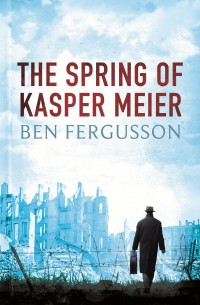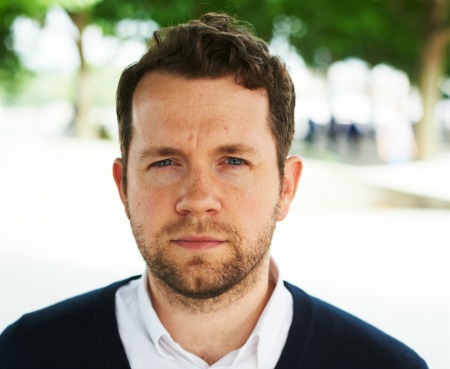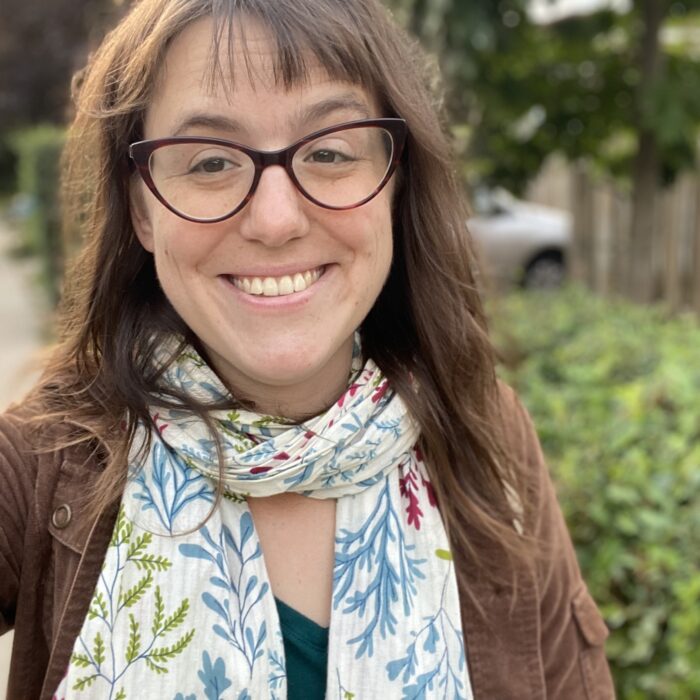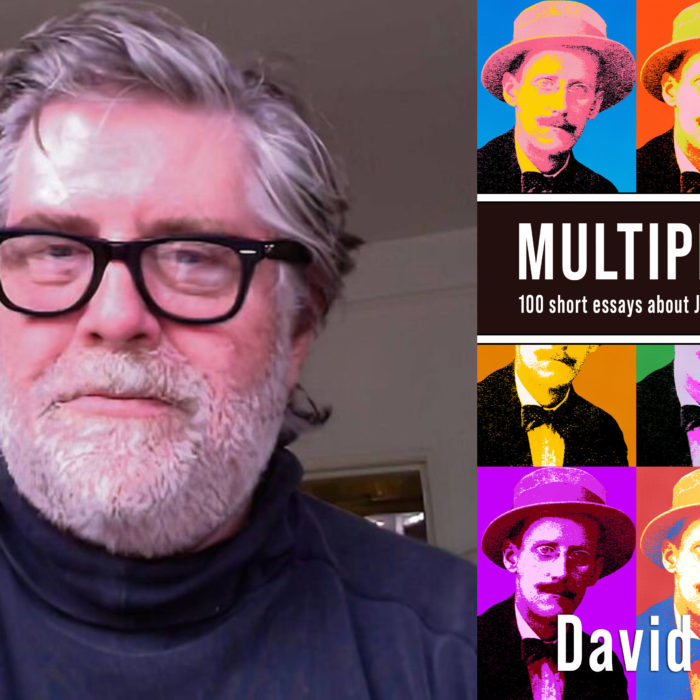You have no items in your cart. Want to get some nice things?
Go shoppingBen Fergusson – author of Litro’s current Book Club pick, the thrilling debut The Spring of Kasper Meier – tells us about his experiences living in Berlin, the importance of travel for aspiring authors, and the biggest lie he ever told.
Litro: Ben, thank you for joining us. We are delighted to be reading The Spring of Kasper Meier as our Summer Litro Book Club read of 2014. It certainly makes for engaging reading. Firstly, could you tell us a bit about yourself? How long have you been a writer?
Thank you for having me! I currently live in London. I was born in Southampton, but grew up near Didcot in Oxfordshire. I lived for four years in Berlin before moving back to London about two years ago. My day job is Art Publisher at the Hayward Gallery in London and I have been working in the visual arts for the last ten or so years, mainly in art book publishing.
Hard to say how long I’ve been a writer. I’ve wanted to be a writer since I was a very small child. I started thinking about writing seriously when I was at university, and after university kept writing, but didn’t send off anything for publication for about 8 years. When I finally did it was for a competition in a journal called Chroma, judged by Sarah Waters, and I came second, which was a huge boost. That was a big turning point for me, having someone – especially an established writer – saying objectively that my writing was good. I had already started working on The Spring of Kasper Meier at that point (the end of 2008). A draft of the book was in discussion with an agent from 2009, taken up in 2011, finished and sent out to publishers at the end of 2012 and bought at the beginning of 2013 and will be published this year. I suppose any of these points could be the time I became a writer, depending on your definition.
Litro: In a nutshell, what is The Spring of Kasper Meier about?
The Spring of Kasper Meier is the story of Kasper Meier, a black-market trader in his fifties trying to survive in the ruins of post-war Berlin. A young ‘rubble woman’ (the women who rebuilt Germany after the war, because there were no men in the cities) comes to see Kasper because he’s good at finding things. She blackmails him to help her find a British pilot, but it soon becomes clear that her reasons for blackmailing him are more sinister and related to a string of murders. The book is about the solution to that mystery, but at its heart is about these two lonely people finding a human connection in a very bleak time.
Litro: Where did your inspiration for the book come from?
It came from a few places. Firstly, I’d thought about a similar character to Kasper for a novel set in a classic noir setting in LA about five years before I started writing this book. My thinking was that a gay man would make an excellent detective in the middle of the last century, because they would have to live in the underworld, would have no family to speak of etc. I abandoned this novel (partly because I’d never been to LA!), but when I moved to Berlin in 2008 I became interested in how visible the history of the city is (there are still bullet holes everywhere) and then learnt about the rubble women in my German language class. These three strands came together and the first scene with Kasper and Eva (now chapter two) came together quite quickly.
 Litro: How important was it for you to witness Berlin first hand? What fascinated you about the city?
Litro: How important was it for you to witness Berlin first hand? What fascinated you about the city?
As mentioned, the fact that the history of the city is so visceral was very important to me. In the East, there are whole blocks missing (including one behind our flat) that had been bombed and never filled in, because they didn’t have enough money in East Berlin. Where The Wall used to be there are just strips of empty land and rows of houses that just stop. The scars are very apparent. I was also very struck by the fact that the old ladies in the street might have rebuilt the houses around us, but are just going about their business as if nothing has happened. For understandable reasons, old people never talk about the war in Germany (in stark contrast to my grandparents!), which got me even more interested. All this history and no one talking about it.
Living in Berlin also made it much easier practically to imagine where Kasper was going and what he was doing. The buildings of Berlin, with their courtyards and back buildings, lend themselves to a certain Rear Window vibe that works very well for a novel with a thriller element and I would probably have missed that if I hadn’t lived there.
Litro: Would you advise young writers to travel? What difference did living oversees make to your own writing?
I would advise anyone to travel and live overseas. Other than just being fascinating, it also makes you far better at looking at your own culture, simply because you see all the things that are cultural rather than innate. I became very aware, for instance, of how much of an island nation we are in Britain and also how affected Germany has been by having constantly shifting borders. It changes the way people think about themselves and the world.
In terms of how it affected my writing – I suppose it gave me this story. I’m also a writer who enjoys having a little distance, culturally and historically, from their subject. I find it easier to crystallise what I want to write about.
Litro: There’s a strong theme of deceit in the book, with none of the characters really trusting anyone else. To what extent do you think the post-war era you’ve written about echoes our own age of hi-tech subterfuge and the sale of secrets?
What an interesting question, though I’m not sure I have a very good answer. It’s certainly not something that I’d thought about while writing the book. There may well be an echo there, but it wasn’t consciously done.
I think in general trust is a very complex issue. No one is completely honest with people about themselves, in part because we’re not even honest with ourselves. I’m constantly fascinated by how people fool themselves into believing more convenient truths. And yet, we’re desperate to have an honest connection with people and, certainly for me, the most important moments in life are when you do manage to connect in some way, which is what Kasper and Eva are trying to do.
Litro: What other themes were you interested in addressing in the novel?
There are so many themes I was interested in exploring in this novel. I am particularly interested in these in-between spaces in history – the aftermath that we don’t hear about, because it doesn’t fit into our sense of how history works. I also wanted to write about the complexities of a friendship rather than a love affair – this seemed a harder job to pull off and more interesting to me. I also wanted to write about a gay character whose sexuality, although key to the plot, was not the subject of the book.
Litro: What do you hope people will take away from reading your book?
I hope they find it exciting and moving. Most of all, I hope they’re moved by it. I also hope, like all good books, that it puts them in this specific place and time and makes them think deeply about what it would have been like to live then. That’s what’s so amazing about fiction: everyone can become a gay, German, one-eyed, fifty-year-old blackmarketeer being blackmailed by a very young rubble woman in the ruins of Berlin.
Litro: Who are your favourite authors, and which writers have most inspired your own writing?
My favourite writers are all people whose prose I love – writers who I can happily just read a single page of for the pleasure of their writing. They’re also all writers who are amazing at putting across the melancholy and loneliness of life, while remaining strangely hopeful. For me that’s Richard Yates, Alice Munro, Katherine Mansfield, Truman Capote, E.M. Forster, John Cheever, among many others. For plot and atmosphere, I’d also add Graham Greene, though I avoided reading The Third Man until I’d finished Kasper Meier, because I didn’t want to be overly influenced.
Top of this list for me at the moment would probably be Richard Yates. I try and only read one of his books a year, because I can’t bear the idea of finishing them all. I just read The Easter Parade – what a book! He’s also an amazing plotter, even though his books are deceptively simple. Think of that devastating moment in Revolutionary Road when Frank comes back from New York after sleeping with another woman and April and the children have made him a birthday cake. It’s like a punch in the stomach.
Litro: We’re going to put you on the spot here… what’s the worse lie you’ve told?
When I was about seven I told my mother that everything I saw was pixelated (I’d seen a picture of something pixelated in the Radio Times). I have no idea why I said it, but my parents were really worried and I was carted off to the optician to have my eyes checked. I think he realised immediately that I must have been lying, but very sweetly just tweaked my prescription and I later pretended it had improved!
We pick the most exciting new titles out there for the Litro Book Club, and you’ll get them sent to you before they hit the shops. You’ll get access to live author Q&As, and the chance to see your reviews published on the site. It’s a great way of meeting like-minded book-lovers too.
Join the Club
Read the book?
Tell us what you think on the Book Club discussion page.





